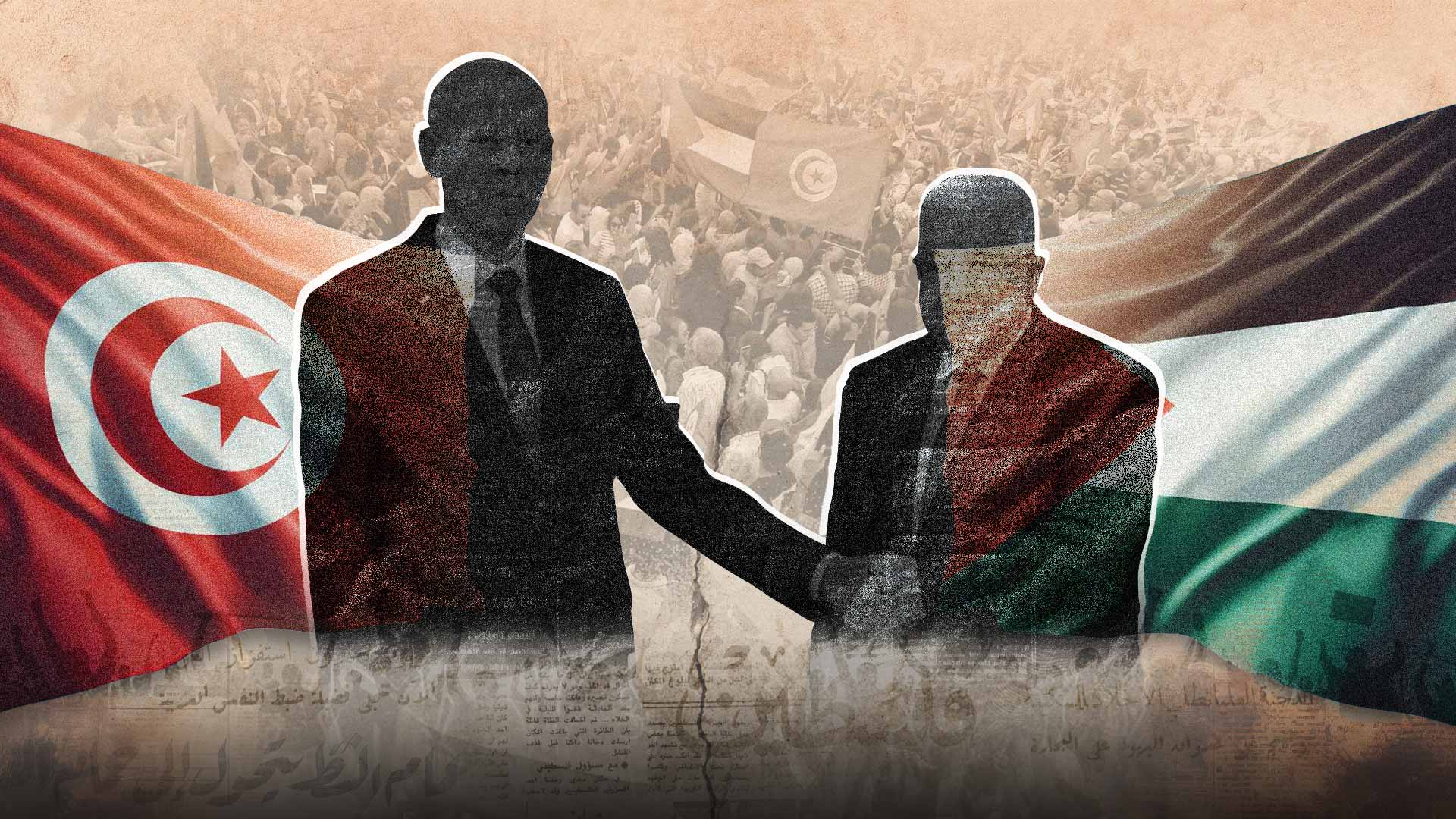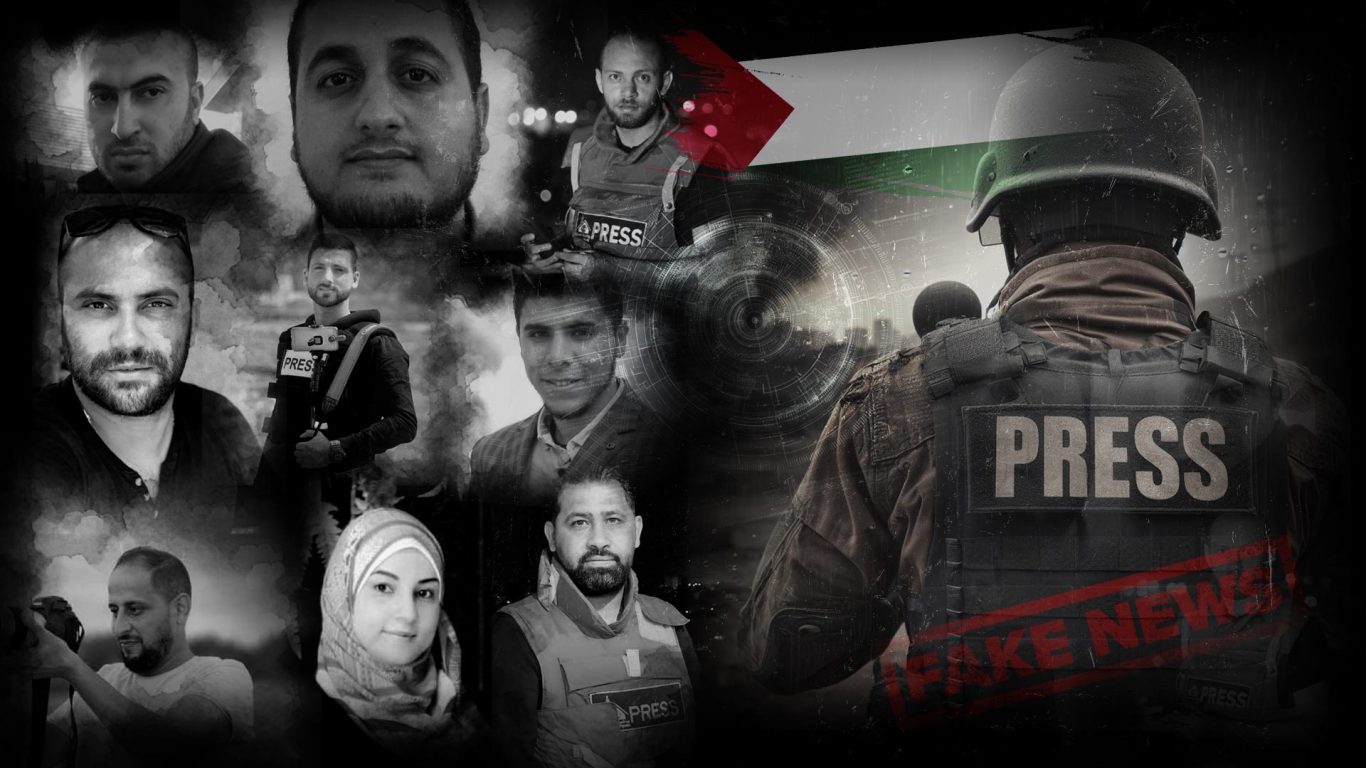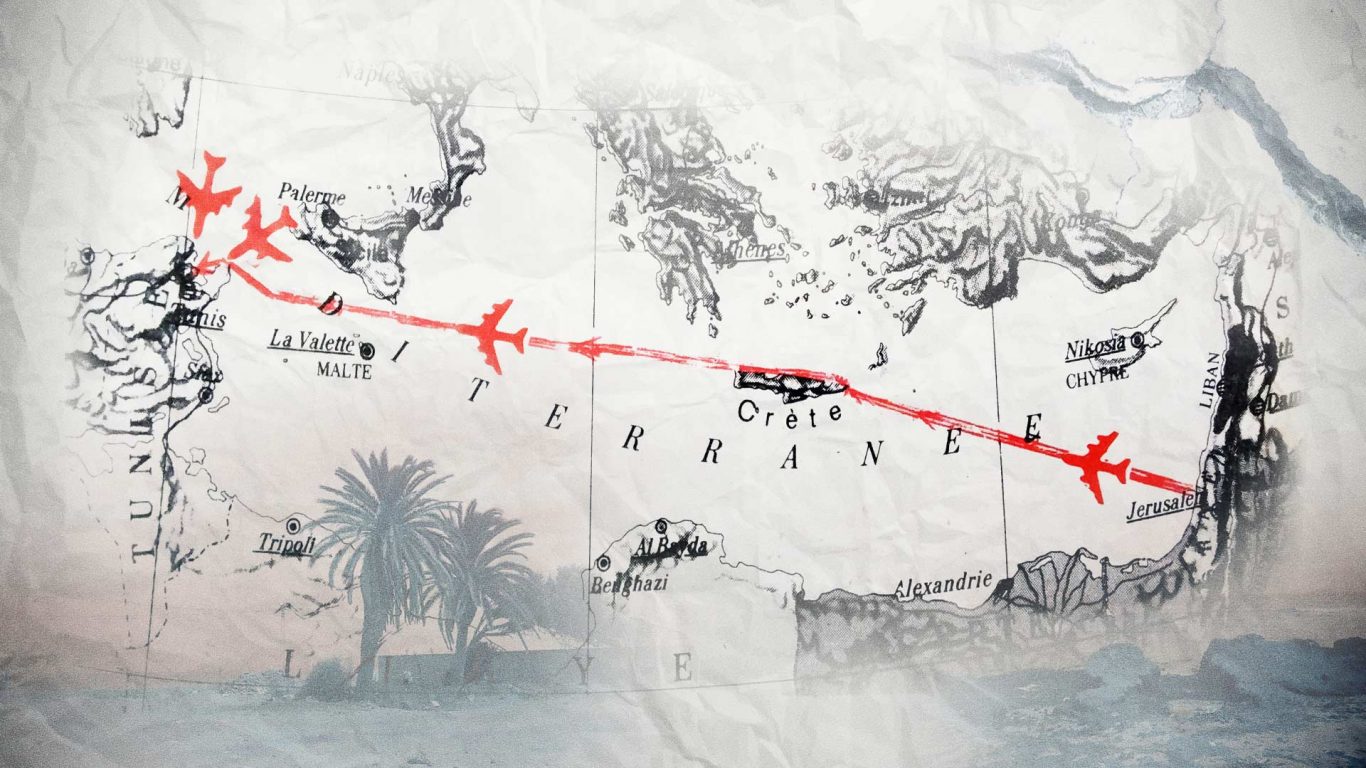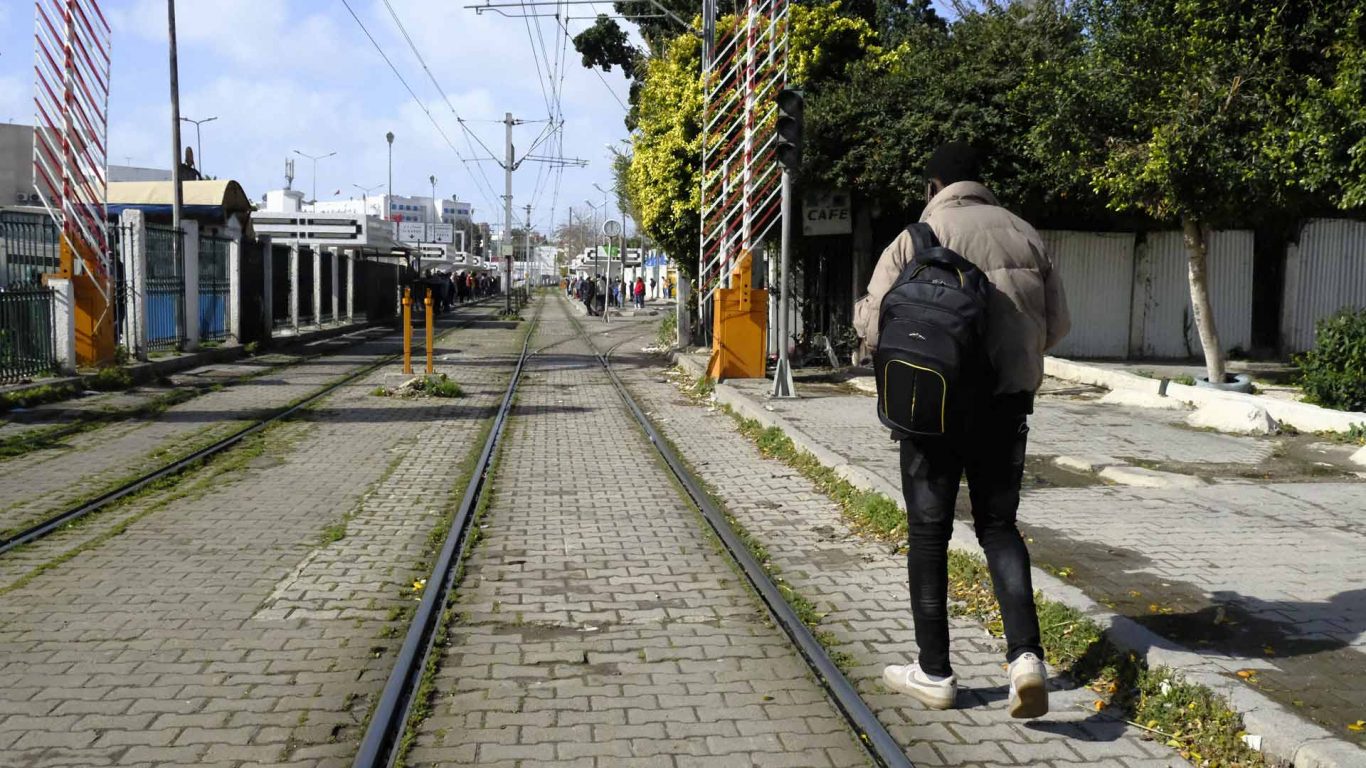Aside from providing material aid, Tunisia was also quick to respond to the violence taking place in Gaza, notably through its institutions. There has also been a high level of solidarity among the population, with tens of thousands of protestors in the streets. But what is the scope of this support for the Palestinian cause? And what is its impact on the Palestinians themselves?
Tunisia, an anchor of Palestinian support
Twelve hours after Hamas launched the attack on southern Israel, the Tunisian Presidency expressed its "total and unconditional support for the Palestinian people". Issued on October 7, the presidential statement stressed that "the Gaza envelope is, in reality, Palestinian land under Zionist occupation", and called on the international community to fulfill its historic responsibility to put an end to Israeli colonization and violations of the Palestinian people's rights.
The country's institutions have been holding extraordinary sessions. On Tuesday October 17, the Assembly of People's Representatives (ARP) held an exceptional plenary session to examine the situation in Palestine and "to discuss the brutal aggression against Palestine and the support mechanisms that have been launched".
For its part, the Ministry of Education has called on the country's schools to raise the flag and play the Palestinian anthem the day after the conflict started. As for cultural events, the closing ceremony of the Dream City festival was cancelled, as was the Carthage Film Festival (JCC).
Tunisia is also taking a stand on the international stage. During an emergency extraordinary session of the Arab League Council at the ministerial level held on October 11, Foreign Minister Nabil Ammar stated that "the Arab League's decisions did not measure up to the historic event that the Palestinian people are living through, nor did they take into consideration their suffering".
On the same subject
Tunisia's support is hardly new. At UN Security Council meetings, the Tunisian State has always backed resolutions aimed at putting an end to the Israeli occupation. In 2021, for instance, during an emergency session of the UN General Assembly, the then Minister of Foreign Affairs, Othman Jarandi, addressed the Member States present: "How many more martyrs will have to die, how many more women will have to lose their children, before the international community takes action?"
From a historic point of view, since its independence, Tunisia has consistently shown solidarity with the Palestinian cause and its struggle. During the 1980s, it extended a welcoming hand to the Palestine Liberation Organization (PLO) led by Yasser Arafat, allowing it to establish itself on Tunisian territory after it had been expelled from Beirut.
On the same subject
This support can also be seen in the streets. On the evening of October 17, when Israeli forces bombed Gaza's Al-Ahli hospital, killing at least 500 people as reported by the Palestinian Authority's Ministry of Health, thousands of Tunisians gathered on Avenue Habib Bourguiba both spontaneously and in response to numerous calls by trade unions and civil society. According to figures provided by the Ministry of the Interior, 69.000 Tunisians marched throughout the country the following day, including 20.000 in the capital.
Legislating support
Protestors chanted slogans such as "normalization is a crime", a hotly debated topic in Arab societies for many years. Egypt has set a historic precedent as the first Arab country to normalize relations with Israel, followed by Jordan in 1994. In 2020, both the United Arab Emirates and Bahrain signed the Abraham Accords Declaration, thus normalizing their relations with the Zionist State, and were soon joined by Morocco and Sudan.
But, Tunisia is a different story. In 2023, rumors that Tunisia would normalize its relations with Israel sparked off heated controversy both at home and abroad. However, President Kais Saied's position is crystal-clear: normalization with "the occupier" is considered "high treason", as he told France 24 May 2021.
Foreign Minister Nabil Ammar explained in an interview that Israel had tried to persuade Tunisia to follow the example of other Arab countries, but that giving in to such proposals was out of the question, asserting that "the term 'normalization' did not exist in the President's dictionary."
The President made the Palestinian cause one of the key elements of his speeches during his 2019 presidential campaign. Once elected, his speeches and addresses regularly featured the Palestinian question, as he voiced his concern at the developments on the ground and called for a peaceful resolution to the Israeli-Palestinian conflict.
The first attempts to legitimize relations with Israel can be traced back to 2012, during the time of the National Constituent Assembly (NCA). Back then, demonstrations were already taking place to call for the criminalization of ties with the Zionist State, and talks were underway within the NCA to incorporate this law into the Constitution. In September of the same year, at a meeting held in Sfax, Abdelwaheb Maatar declared that "Tunisia's liberation depends on the inclusion of the criminalization of normalized relations with Israel in the Constitution".
Comparing the preambles to the 2014 and 2022 Tunisian constitutions reveals a significant change in the country's approach to the issue of pro-Palestinian support. The 2022 Constitution stands out from the 2014 one for its much more explicit commitment to Palestine. While the 2014 text makes a brief reference to the "just liberation movements at the forefront of which is the Palestinian liberation movement", the 2022 text adopts a more direct and assertive tone.
It places particular emphasis on "respect for international law", especially when it comes to the "the right of the Palestinian people to their stolen land and the establishment of their state over it after its liberation, with Al-Quds Al-Sharif as its capital."
A still debated law
Aside from the support expressed in the Constitution, a bill entitled "Criminalizing normalization with the Zionist entity, recognizing it and dealing with it" was introduced. The first amended article was approved by the Committee on Rights and Freedoms, which is due to meet again to further examine the bill, article by article. In light of current events, some ARP members have called for the urgent review of the bill on October 12.
Criminalizing normalization is a regular topic of discussion within Tunisian institutions. 36 members of the National Constituent Assembly introduced a bill In November 2012, to "criminalize all forms of normalization with the Zionist state". The initiative was led by the Al Wafa parliamentary group, made up of former members of the Congress for the Republic (CPR) party.
This draft law was mainly symbolic at the time, consisting of just two articles and lacking a clear definition of normalization. Article 1 simply criminalizes all forms of political, economic, financial and cultural normalization. While several attempts were made to put this proposal on the agenda of the relevant committee, it was never deemed a priority and was never discussed during the NCA's term of office.
After nearly a decade, the new bill is currently being debated, on the initiative of the National Sovereign League (LNS), a two-party parliamentary bloc - the People's Movement and the Democratic Patriots' Unified Party - which has been sitting in the ARP since March 13, 2023.
Among other things, the draft law provides a definition of the "Zionist entity" and specifies what qualifies as a normalization crime. It criminalizes acts of "trade, contracting, cooperation, and communication of all types, be it commercial, industrial, artisanal, professional, service-related, cultural, scientific, or sports-related, whether compensated or not, occasional or regular, undertaken directly or indirectly through intermediaries, by natural and legal entities of Tunisian nationality”, and this, "regardless of their place of residence, with all natural and legal persons affiliated with the Zionist entity."
It also identifies the competent judicial authorities responsible for prosecuting this crime, namely the Court of First Instance in Tunis, as well as the applicable penalties. If convicted, individuals could face prison sentences of two to five years, with fines ranging from 10 to 100.000 dinars. Similar sentences are prescribed for attempted normalization.
A challenging visa policy for Palestinians
Ramy, a Tunisian-Palestinian living in Tunisia for several years, expressed "the people and the government are showing unconditional support for Palestine, and the government's stance has been consistently unequivocal. This is evident in its refusal to engage in normalization with Israel and its firm belief that Palestinian land rightfully belongs to the Palestinians. Tunisia is the only country where being Palestinian can be considered a privilege".
And yet, as committed as Tunisia is to the cause, Palestinians wishing to come to Tunisia still struggle to get a visa. "The procedures are endless and complex, and getting a visa is always a gamble," said Ramy.
Hamza, originally from Gaza, can confirm this. In 2012, the young man arrived in Tunisia to pursue his medical studies thanks to a Tunisian-Palestinian exchange program. As part of a set of agreements with Palestinian universities, the Tunisian Ministry of Higher Education reserves places in its universities for Palestinian students each year. He had to go through Egypt to obtain his visa. "The procedures take much longer when you initiate them from Gaza", he explained.
The reason for this is that there is no Tunisian embassy in Gaza, only an agency that handles the applications and forwards them to the Tunisian representative office located in Ramallah on the West Bank. When his brother and sister wanted to visit him, their visa applications were rejected, thus preventing the young doctor from seeing his family for nine years.
Many Palestinians living in Tunisia are affected by this issue. Sherif, for instance, is originally from Ramallah. He has been living in Tunis for ten years.
"I've only been able to see my family once, when I went back to Palestine in 2017. They tried to come and visit me, but their visa applications were systematically rejected each time."
Ramy believes that the difficulties Palestinians face when trying to obtain a visa "are not entirely Tunisia's fault, as it has always shown unconditional solidarity with Palestine." It's rather due to "the lack of diplomatic efforts between countries to facilitate the movement of Palestinians."
A lack of international cooperation
The challenging visa procedures for Palestinians wishing to enter Tunisia have already caused controversy in the country. Social networks were buzzing with debate in 2018 over the entry of Ahed Tamimi's father, an emblematic Palestinian activist, into Tunisia. Reports suggested that he had been denied entry to the country. But the Ministry of Foreign Affairs was quick to deny these allegations, stating that the activist's father was granted a visa the day after he submitted his application, and the Ministry's Director of Information asserted that "all Palestinians are welcome in Tunisia".
In 2021, Jamila Ksiksi and a group of Tunisian parliamentarians called for the abolition of visa requirements for Palestinians. The Minister of Foreign Affairs at the time, Othmane Jarandi, responded by announcing the convening of a bilateral commission between Tunisia and Palestine to examine the matter, stressing that there was " no agreement regarding the movement of people between the two countries."
In Tunisia, visa issuance for Palestinians varies from one group to another. While some Palestinians holding Jordanian passports can come to Tunisia without a visa, others living in the occupied territories face major difficulties getting into the country. Sana, an artist from Haifa, Israel's third largest city, is a case in point. Haifa is home to an Arab minority of around 200.000 people, officially known as Palestinian citizens of Israel . These Palestinian citizens hold Israeli passports, making it impossible for them to enter Tunisia and other Arab countries.
For instance, Sana was planning to travel to Tunisia to take part in an arts festival a few weeks ago, but she wasn't able to get a visa.
"I do respect the Tunisian government's decision to refrain from dealing with the Israelis, but I can't help but feel frustrated at their lack of understanding of our situation as Palestinians," explains Sana.
"We didn't choose to have this passport, it was imposed on us!" she said. She had submitted three visa applications for Tunisia since 2017, but all of them had been systematically rejected. Walid, a Palestinian living in Tunisia, is facing a similar situation. "My family can't come to Tunisia because of their Israeli passports, but we are Palestinians and we have no other choice," he told inkyfada.
The daily challenges
Hamza and Walid have been living and working in Tunisia for several years. Yet, they must request a new residency permit from the General Directorate of National Security each year because the situation of Palestinians in Tunisia is governed by the laws regulating the entry and stay of foreigners in the country. "This process can take months," they both agreed.
These delays, which are due to "the Tunisian administration’s shortcomings", are affecting Hamza's life. "I can't stay here without papers, it's a dangerous situation and it could ultimately harm my own projects". As for most foreigners in Tunisia, getting a residency permit is extremely challenging, especially for sub-Saharan foreigners.
On the same subject
Palestinians are no exception when it comes to facing these bureaucratic challenges. Ramy acknowledges that the support of the Tunisian people for the Palestinian cause is typically an advantage and a privilege on a daily basis, but not when dealing with institutions.
"So why do Westerners have it so easy in Tunisia, but not Palestinians, who are already struggling?" asks Ramy. "But I also realize that Sub-Saharans are in an even worse situation," he adds.
This has made it extremely difficult for Palestinians to come to Tunisia or to have their families join them, robbing them of the chance to be reunited with their loved ones for years on end. With the ongoing Israeli attacks on Gaza, many people have found themselves in a precarious situation, enduring the pain of losing family members from afar.







